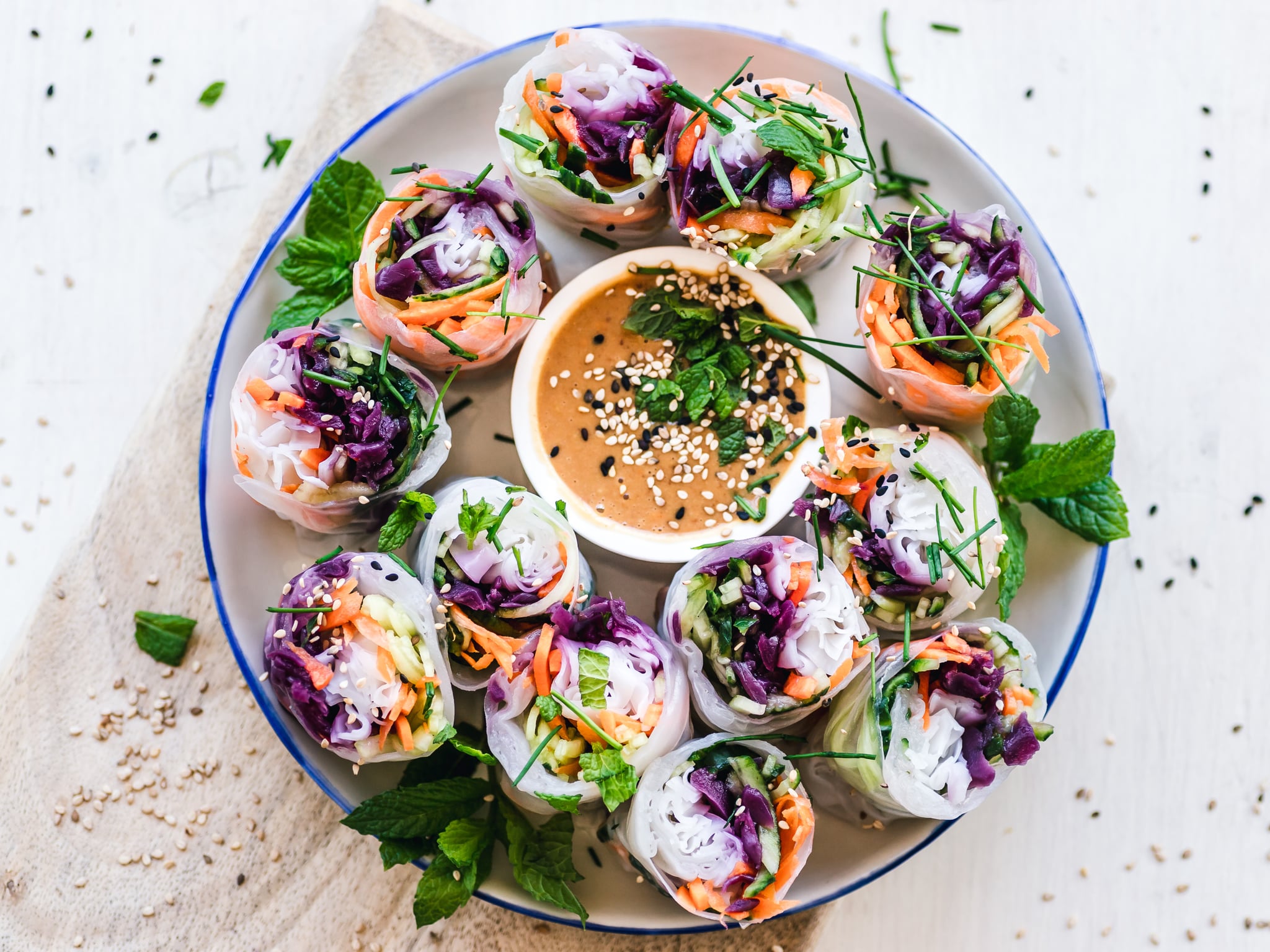What to Know Before Going Vegan, According to Doctors
Thinking of Going Vegan? Read What 3 Experts Have to Say First

As a weekday vegetarian, I often wonder whether or not I could handle being vegan. Despite my love for cheese, I'm pretty confident I could give up chocolate, eggs, and meat, so with Veganuary in full swing, I'm seriously considering jumping on the bandwagon to see if I can go a month without gorgonzola.
Based on what my vegan friends say, transitioning to a vegan diet in no easy feat. That's why I asked Dr. Carrie Ruxton, dietitian and nutrition consultant from the Health and Food Supplements Information Service, Dr. Tom Little, specialist nutritionist and head of performance & nutrition at Colour-Fit, and registered dietitian nutritionist Krista Linares, to give me the low down on what I need to know before potentially ditching all my favourite dairy-filled foods.
Eating Vegan Doesn't Make You Healthier
"Vegan diets can offer massive benefits for couch potatoes right through to elite athletes by promoting plant-based whole foods such as vegetables, salad, fruits, whole grains, bean, legumes, nuts, and seeds," said Dr. Little. "These foods have been proven to be beneficial for our cardiovascular, brain, metabolic and gut health, immunity, cancer risk, inflammation, mood, and appearance as they are typically high in critical nutrients such as phytonutrients, vitamins, minerals, and fibre," he continued. However, Dr. Little is quick to point out that being a vegan doesn't automatically make you healthy. Dr. Ruxton agreed, noting that many vegan products and recipes are actually high in salt and sugar.
You Need to Be Aware of What You're Consuming
"Like any other diet, a balanced vegan diet needs to include protein, fibre, vitamins, minerals, and healthy fats," explained Dr. Ruxton. Given vegan diets are generally higher in carbohydrates and lower in protein, Dr. Ruxton, Dr. Little, and Linares agreed that you'll need to be more aware of what you're consuming to ensure you are getting all the right nutrients.
"The most commonly observed deficiencies include B-12, iron, zinc, calcium, and iodine," said Dr. Little. To combat this, Ruxton suggested taking a daily multivitamin with minerals to replace those that are found in animal products (but please consult with your GP or a registered dietitian, first), and investing in vegan cookbooks that break down each recipe and its nutrients to gain a better understanding of how to eat.
It's Best to Transition to a Vegan Diet Gradually
If you've made the decision to transition to a vegan diet, all three experts suggested doing so gradually, introducing new foods and meat alternatives slowly to allow your body to adapt at its own pace. While there are no set rules, Dr. Linares said that personality can play a huge factor in the transition, as some people may find it easier to do the opposite and jump straight in. Ultimately, you just need to decide what will be sustainable for you.

